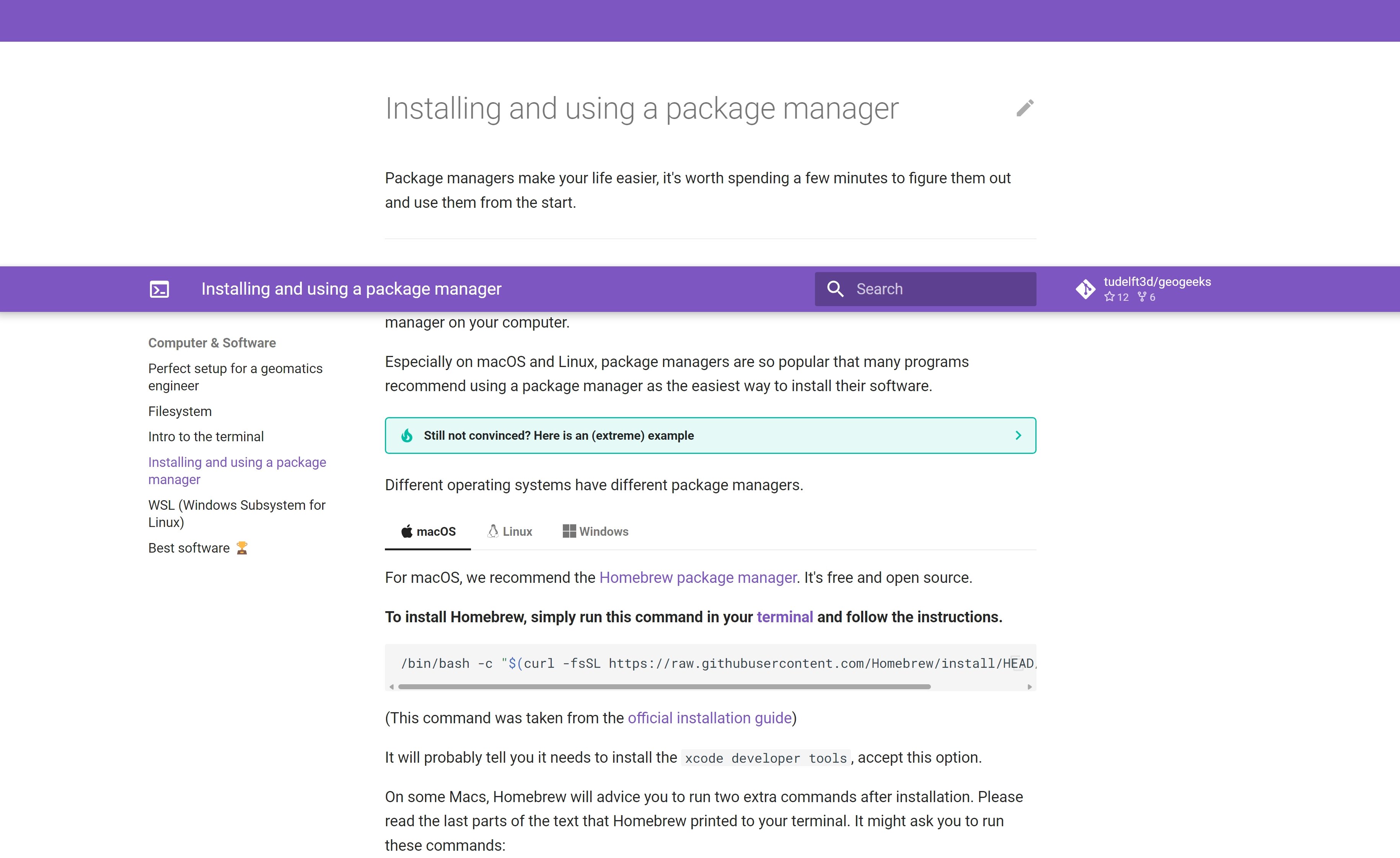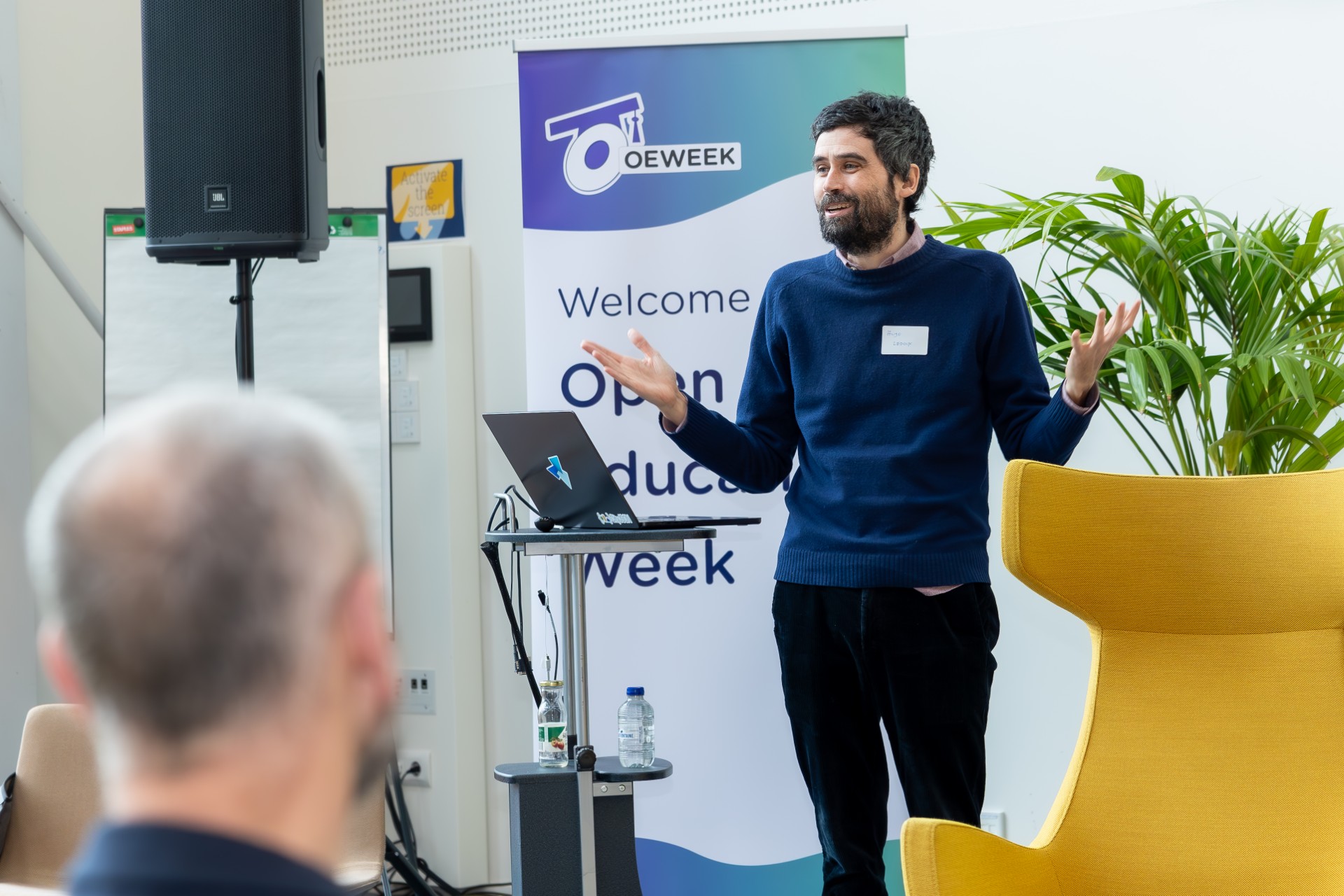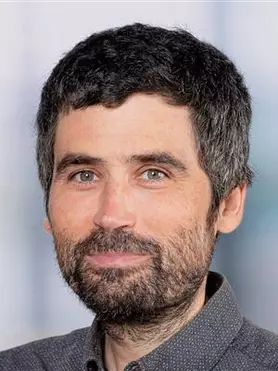Mastering computing skills – for geomatics engineers
The geomatics master at TU Delft combines principles from geography, mathematics, and computer science to study and visualize spatial information. Think of 3D maps, remote sensing, surveying, and regional planning. Next to the required theories and concepts, the master involves a lot of computer skills for acquiring, analysing, interpreting, and managing geospatial data.
“Teaching has changed a lot in recent decades, it used to be more about knowledge and much less about processing data,” says Hugo Ledoux, associate professor at the Faculty of Architecture and the Built Environment. “The required tools and skills not being considered very ‘scientific’, they are often not taught in courses. We expect students to simply keep up. But the effort it takes for them to find the right tools, and master them, can be so overwhelming that it distracts them from what they should really be learning. I wanted to make this more manageable.”
Acquiring the funding from the Open Education Stimulation Fund gave my idea more credibility.
Hugo Ledoux
The best tool for ‘X’
His solution was to develop a platform with a collection of interactive lessons on tools and workflows relevant to Geomatics engineers, covering all the major computing platforms. It’s an idea he had in his mind for some time, but it never gained traction. “Acquiring the funding from the Open Education Stimulation Fund gave my idea more credibility,” he says. “And it allowed me to hire two students who had attended all courses to help make an inventory of the tools and skills involved. That’s when things really started to take off.”
Tailored specifically to the geomatics master at TU Delft, the GeoGeeks website contains tutorials on some very specific software and skills – the best tool to do ‘X’ as well as how-tos. But it also covers more general computer skills. These may be as mundane as how to use file systems or how to connect to a Linux server, or as complex as automating tasks through scripting, and version control and debugging techniques for software development. Having made the website available to anyone, students from other master’s programmes may also benefit from it.
It was rated very positively by the students, and most of the teaching staff also see the benefit.
Hugo Ledoux
Masterclass
Ledoux is especially proud that this academic year already, his efforts have led to the Geomatics master programme freeing up two full days in the second quarter for all the general computer skills on the website to be taught to the students. “It was rated very positively by the students, and most of the teaching staff also see the benefit,” Ledoux says. “This year, it was an experiment, but I think it will be integrated in the curriculum going forward. Without the grant, this would never have been possible.”
Even though the two-day ‘masterclass’ felt a bit crammed with information, the students should now have a better understanding and know where to find more information if needed. “I think the combination of a masterclass and website will end up saving both the students and instructors a lot of time. The latter, as they will often be asked for help if a student gets stuck.” And when Ledoux gave a presentation at the TU Delft Open Science Day, the website idea was also favourably received by lecturers from other departments.
Another impact the project may have, is for the software tools used in the curriculum to become more harmonized. “Right now, each lecturer tends to use their own favourite tool for performing a certain task. But now that we have the complete overview, perhaps we can commit to limiting the number of tools for students to master. This is a human aspect that still needs some attention.”
I think the combination of a masterclass and website will end up saving both the students and instructors a lot of time. The latter, as they will often be asked for help if a student gets stuck.
Hugo Ledoux
Self-maintained
Although initially poised to have video tutorials at its core, the website ended up containing mostly text as videos are difficult to update whenever, for example, new software versions are released. In general, and now that funding has ended, the plan is for the website to be self-maintained and expanded by the master’s students. “I am not sure this will work, we have to see,” Ledoux says. “But we taught them how to do it, and support is on the website itself.”
About the Open Education Stimulation Fund (OESF)
In October 2022, the Open Science Programme launched the Open Education Stimulation Fund to enable TU Delft lecturers to innovate their courses with open education. Staff across all faculties were encouraged to submit a proposal for Open Education-related projects for funding up to EUR 20,000 and with a maximum project term of 1 year.


